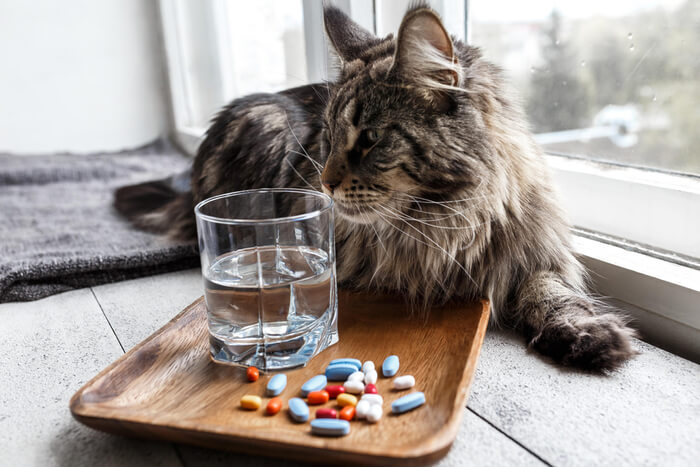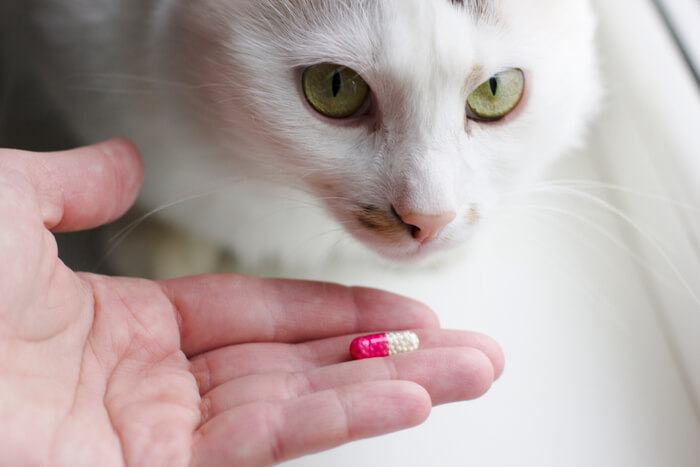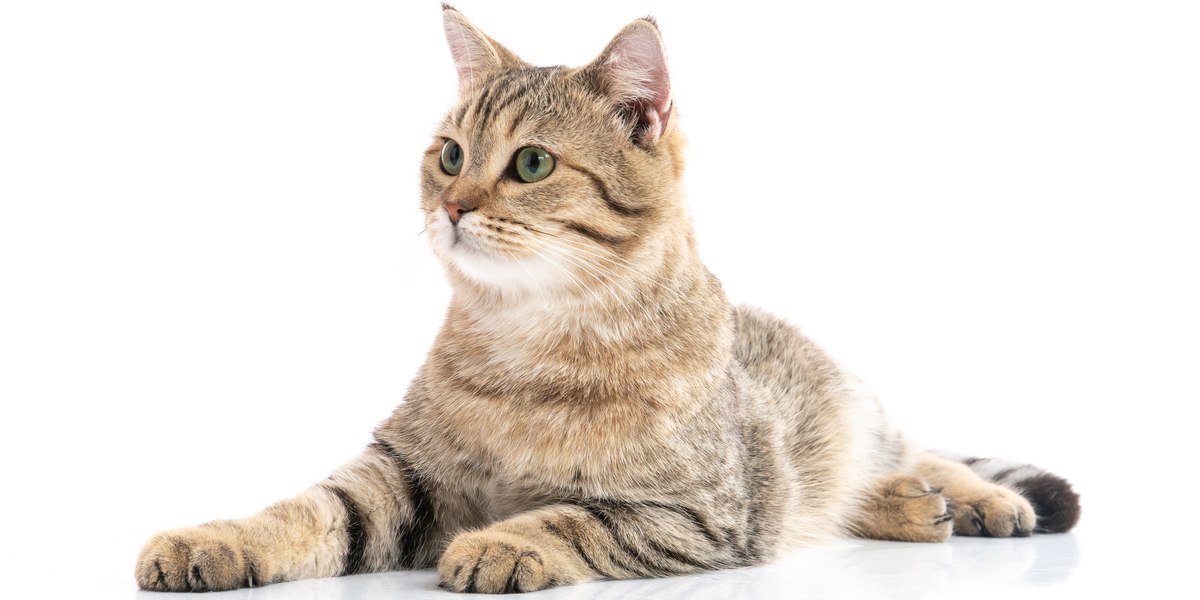Benadryl For Cats: Safety Guidelines And What You Should Know?
This page contains affiliate links. We may earn money or products from the companies mentioned in this post through our independently chosen links, which earn us a commission. Learn More
If your cat is unwell, it’s really tempting to try to make them feel better with whatever you have at home. Sometimes that means making an extra soft and cozy bed for them to rest or offering them some strong-smelling or tasty food to get them eating again. However, sometimes you might find yourself wanting to reach into your own medicine cabinet for something that might do the trick.
Although this is well-meaning, giving your cat human medication can be a risk if you haven’t checked that it is safe by asking your veterinarian. So, what about Benadryl? Can Benadryl be used safely in cats?
What Is Benadryl?
Benadryl is the trade name of an antihistamine called Diphenhydramine. It is used in humans to help with hay fever symptoms, including runny and itchy eyes, a runny nose, and sneezing. It is also useful to treat symptoms of other allergies like swelling, rashes, and redness. During an allergic reaction, your body reacts by releasing a substance called histamine.
Histamine is the natural chemical responsible for causing not just irritating but occasionally life-threatening allergy symptoms that range from a mild, itchy rash to facial swelling and trouble breathing. Benadryl blocks histamine release, reducing and even preventing allergy signs. Benadryl is available as a tablet, capsule, or liquid, and some veterinarians will also have access to an injectable version.
Is It Safe To Use Benadryl On Cats?

Before giving any medication to your cat that hasn’t been prescribed, you must check with your veterinarian. Although Diphenhydramine has been used safely and effectively in cats, it’s not licensed for use in this species. This means that its use in cats is ‘off label,’ and its safety can’t be absolutely guaranteed in every case.
Different formulations of Diphenhydramine can sometimes contain additional ingredients which give extra benefits to human allergy sufferers. However, these other ingredients might not be safe for your four-legged friend, so be sure to check the label and ask your veterinarian if you are unsure.
Benadryl may not be safe to give alongside other medications or if your cat has certain health conditions. This is another reason why you should let your veterinarian know if you plan to give it to your cat.
It’s also important to remember that there might be a more effective medication to get your cat on the road to recovery. If that is the case, you might delay their improvement by trying human drugs at home.
Once your veterinarian knows your cat’s current symptoms, they can use their knowledge alongside your pet’s health record to advise you on whether Benadryl is suitable.
What Are The Possible Side Effects Of Benadryl In Cats?
Just like people, cats can become drowsy when they take Benadryl. They can also become a little quieter than usual, experience dry-mouth, or stop passing urine. As with any medication, cats might occasionally have adverse effects when taking Benadryl. Medication reactions can vary from sickness and diarrhea to anaphylactic reactions, but thankfully severe reactions are very rare.
What Are The Situations When Benadryl Could Be Used To Treat A Cat?

Benadryl is mainly used in cats for skin irritation, hair loss, or rashes caused by allergies to fleas, food, pollen, and many other allergens. It can also be used for cats with watery discharge from their eyes or nose or sneezing caused by respiratory allergies.
There have been cases where Diphenhydramine has been used to treat nausea or vomiting caused by motion sickness. However, it’s not always useful for this symptom, and there are more effective medicines that can be used. If you chat with your veterinarian, they will give you their opinion on what will work best.
How Much Benadryl Do You Give A Cat?
The exact dose of Benadryl for your cat is best obtained by speaking to a veterinarian. However, it’s worth considering which form of the medication would be best tolerated by your fussy feline. For cats who won’t take tablets or capsules, the liquid might be a better option. On the other hand, the amount of liquid needed is quite large, so you might have more success if you disguise a tablet in something tasty!
Frequently Asked Questions
What does Benadryl do for a cat?
Benadryl, which is the trade name of the antihistamine Diphenhydramine, is used to treat symptoms of allergies in cats. These symptoms include skin rashes and redness, itchiness and irritation, and swelling. It can also be used for allergy symptoms affecting the eyes and nose and may help treat motion sickness.
You must speak to your veterinarian before giving any medication to your cat, though, in case there is a reason why they shouldn't have it.
What kind of Benadryl do you give a cat?
It's very important to check the ingredients before giving Benadryl or any other brand of antihistamine to your cat. The only medication contained should be Diphenhydramine Hydrochloride because any additional ingredients might not be safe for your furry friend.
Can you give Benadryl to cats?
If your cat is experiencing a severe allergic reaction, you should take them to the veterinary clinic for an emergency appointment. If they have mild symptoms that you think might be caused by an allergy, they may be able to have Benadryl. Benadryl is safe for most cats, but there are some situations where Benadryl might not be the best choice to get your kitty on the mend.
As long as you speak to your veterinarian first and check the label carefully, Benadryl might be an excellent option to give your cat some relief.



